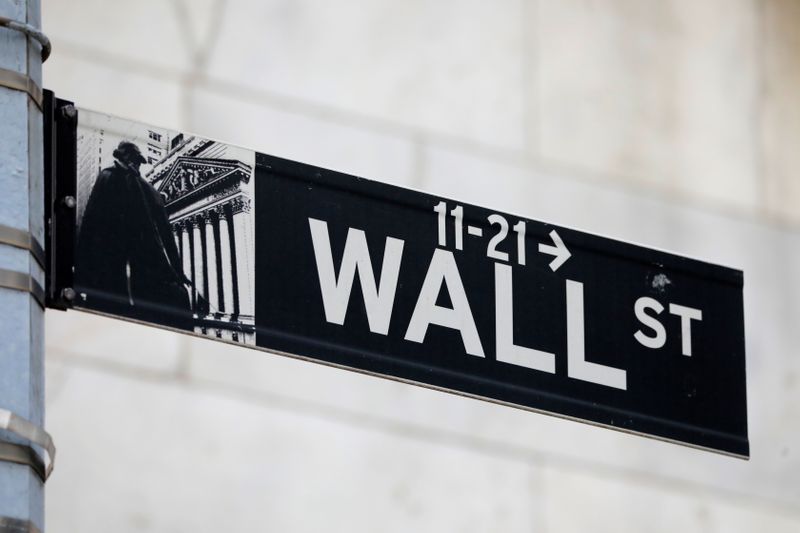 © Reuters
© Reuters
By Geoffrey Smith
Investing.com -- U.S. stock markets opened mixed on Thursday, as an unexpectedly sharp drop in jobless claims and more hawkish rhetoric from Federal Reserve officials kept the fear of tighter money at the front of the market's mind.
By 9:45 AM ET (1345 GMT), the Dow Jones Industrial Average was down 84 points, or 0.2% at 34,413 points. The S&P 500 was up 0.1%, however, and the Nasdaq Composite was up 0.3%. That still represents only a modest bounce after two days of heavy losses as the market adjusted to signals from the Fed that interest rates will have to rise faster than previously expected in order to bring inflation down.
One of the main reasons for that is the tightness of the labor market, which was underlined again in data released earlier by the Labor Department. Initial jobless claims fell to 166,000, while previous weeks' data were also revised down to reflect changes to the process of seasonal adjustment by the Bureau of Labor Statistics. Layoffs are now running at their lowest in over 50 years, while vacancies are close to record highs and the unemployment rate is down to a paltry 3.6%.
Elsewhere, St. Louis Fed President James Bullard, who has been the most outspoken and earliest advocate for tightening monetary policy at the Fed, said the central bank is still well "behind the curve" in fighting inflation, and indicated that the fed funds rate may need to rise to around 3.5% or more to bring inflation down. That's the latest in a series of warning from Fed officials in the latest week that have prepared the market for bigger rate hikes and a faster balance sheet reduction than its top leadership had wanted last year.
HP (NYSE:HPQ) stock was the biggest mover in early dealings, soaring 16% after Warren Buffett put a $4.2 billion bet on the maker of laptops and other electronics hardware. The deal is the third big one in quick succession for Buffett's Berkshire Hathaway (NYSE:BRKb), and suggests that the world's most famous 'value investor' is no longer as concerned about U.S. stocks being overvalued.
Elsewhere, Levi Strauss (NYSE:LEVI) stock fell 4.3% despite the maker of denim wear reporting better-than-expected quarterly numbers and upholding its previous guidance for sales growth of around 12% this year. Citigroup analysts cut their target price on the stock to $27 in a note released to clients earlier, but the stock still trades nearly 33% below that.
JD.com (NASDAQ:JD) ADRs fell 3.6% after the Chinese e-commerce giant said its founder and CEO Richard Liu has stepped down with immediate effect. He's been succeeded by Lei Xu, a long-term executive at the company who has most recently served as its president.
The social media space remained buzzy, even two days after Elon Musk's acquisition of a 9.2% stake in Twitter (NYSE:TWTR). Reports suggested that Facebook owner Meta Platforms is working on a Plan B for digital assets after the failure of its Diem stablecoin project. Meta Platforms (NASDAQ:FB) stock eked out a gain of 0.3%, but it remains the most pressured of the tech megacaps, against a backdrop of tightening regulation and a likely slowdown in ad spending as inflation bites into consumer spending power. Roblox (NYSE:RBLX) stock, a more established play on the prospects for monetizing the so-called Metaverse, fell 1.1% despite Citigroup (NYSE:C) analysts rating it as a buy after its recent selloff. The stock has lost two-thirds of its value since its November peak.

